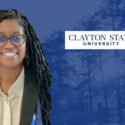 Last month, we reported on U.S. News‘ rankings of the nation’s historically Black colleges and universities. Spelman College ranked first, followed by Howard University and Morehouse College.
Last month, we reported on U.S. News‘ rankings of the nation’s historically Black colleges and universities. Spelman College ranked first, followed by Howard University and Morehouse College.
The website BestColleges.com ranks the nation’s colleges and universities in a number of categories and recently published its own list of the best HBCUs. The website’s methodology ranks HBCUs by taking into account acceptance rate, student yield, retention rate, graduation rate, and the standardized test scores of incoming students. This is far fewer criteria than what is used in the U.S. News rankings.
The BestColleges.com ranking shows Morehouse College as the No. 1 ranked HBCU. Howard University ranks second. When the results were first announced Fisk University held the third spot and Florida A&M University ranked fourth. Spelman College was in firth place
JBHE asked BestColleges.com to explain why Spelman ranked so low given that it is more selective and has higher graduation and retention rates than top-ranked Morehouse and other HBCUs listed ahead of Spelman in the rankings. We received an email from a “Content Analyst” at BestColleges.com that stated:
“Unfortunately, Spelman did not report the SAT writing score of its entering class to IPEDS during the 2011 data collection. That missing data point threw off our calculation. However, we were able to track down the missing number, and we recalculated accordingly. Spelman now ranks at #3 on our list.”










HBCUs need to stop seeking scholarly validation from the implicitly and explicitly racist hegemonic White academia along with its supporting tentacles(e.g., US News and World Report, Accreditation Associations, and Think Tanks[Brookings Institute, Hoover Institute, etc.]).
The reality is that regardless of how HBCUs perform in scientific research, scholarly publications, or alumni(a) who consistently impact the nation and world will not change the manner in which others view HBCUs collectively. The fact remains for HBCUs is to merely perform and allow their intellectual contribution speaks for itself.
I disagree. The fact that we are not a part of these ratings shows some in America that our schools are worth rating and don’t have comparative standards to PWIs. If you are trying to attract African American millennials to your HBCUs today, realize their most likely college educated parents will look at these ratings for comparison. Racist or not that is the grim reality.
Re: Dr. Desnoyers-Colas,
You definitely missed my previous points on numerous levels which is very indicative of years of “soft insurgent” (e.g., multiculturalism) and neo-liberal education. Let’s examine your basic disjointed premise “our schools are worth rating and don’t have comparative standards to PWIs”. HBCUs should never expect the historical and currently higher education landscape to view them with a modicum of integrity? If so, that would minimize the overall value of HWCUs which is against their own best interest. Further, I don’t recall any so-called White scholars continually browbeating these HWCUs with consistent dismal graduation rates being described as “academic disaster areas”, “intellectually inferior schools”, or those “low performing White students”. According to the American Enterprise Institute (2009) “less than 55 percent of first-time students complete their degree within six years”.
It’s unfortunate that entirely too many degree holding so-called Blacks have been convincingly mis-educated. As a result, they’re determining where their Black children will attend college predicated upon a very flawed and questionable rating system. Case in point, simply because a Black student attends a highly ranked HWCU does not imply “they will be receiving this education” similarly as their White, Asian, and White Latino peers. For example, for many Black students who currently attend these so-called top Morrill Land Grant 1860 schools (e.g., Auburn, Florida, Georgia, LSU, Michigan, Michigan State, MIT, Texas A&M, or UC-Berkeley, etc.) are consistently been on the receiving end of disparate treatment (e.g., inside and outside of the classroom). For those who dissent, I would suggest that you venture to the Journal of Blacks in Higher Education (www.jbhe.com) and click on the “Campus Racial Climate” icon to further understand my point.
I am always amazed when so-called Black professors situated at these HWCUs pontificate about necessity of HBCUs or teaching courses about the “Black experience” in an effort to educate Whites, Asians, and Latinos about Blacks in America. As a result, these students will depart their courses even more mis-educated about Blacks in America due to a continuation of contextual pluralism and apolitical information. Regarding the post-secondary education decision Black high school students (millennials, a term created by the ruling elites to create another communication gap within our Black community) parents make is predicated upon a very flawed and questionable rating system. For example, the Black community has more people with so-called degrees in a current context as compared to a mere 40 years ago. If more than 75 percent of Blacks attend HWCUs, it’s quite evident the education they’re receiving is not to specifically solve problems in the Black community. Yet, our overall conditionality has not significantly improved when examining all social indices.
In close, Audrey Lorde stated “the master’s tools will never dismantle the master’s house”. Our warrior scholar, Paul Robeson emphatically stated, “the battlefield is everywhere” and these so-called Black HBCU administrators’ and so-called Black scholars need to realize this in the 21st century.
I agree with Dr. Desnoyers-Colas. I would have been remiss if I failed to review the college ranking before choosing a college for my daughter.
Re: Wayne,
It’s obvious that you have been socially engineered to believe that an HWCU ranking via USN&WR is an absolute indicator that Black students who attend these schools will be receiving “the best” education. Nothing could be further from the truth if you examine how these students are disparately treated(e.g., in the classroom, residential life, student life, and definitely off-campus, while using the campus shuttle, accessing the fitness center, etc.) while matriculating.
However, if these Black students have been shielded from the stark realities of American racism via their Black parents,(e.g., middle & upper class in particular) with falsities such “I don’t see color” or “We’re all the same”. They should be dutifully ashamed and embarrassed for such misguided teachings. For those who dissent and especially the multicultural purists, please share with the public where are the multicultural owned shops in any city in this country?
Further, it appears that you have a low race salience and I would suggest that you other similar thinking persons familiarize yourself with the works of Dr. Kofi Kambon and Dr. Amos Wilson to reverse and rectify this type of thinking. Keep in mind, regardless of the HWCU you attend or work, reside in suburbs or exburbs, or marry non-Blacks, you can never escape your Africanity.